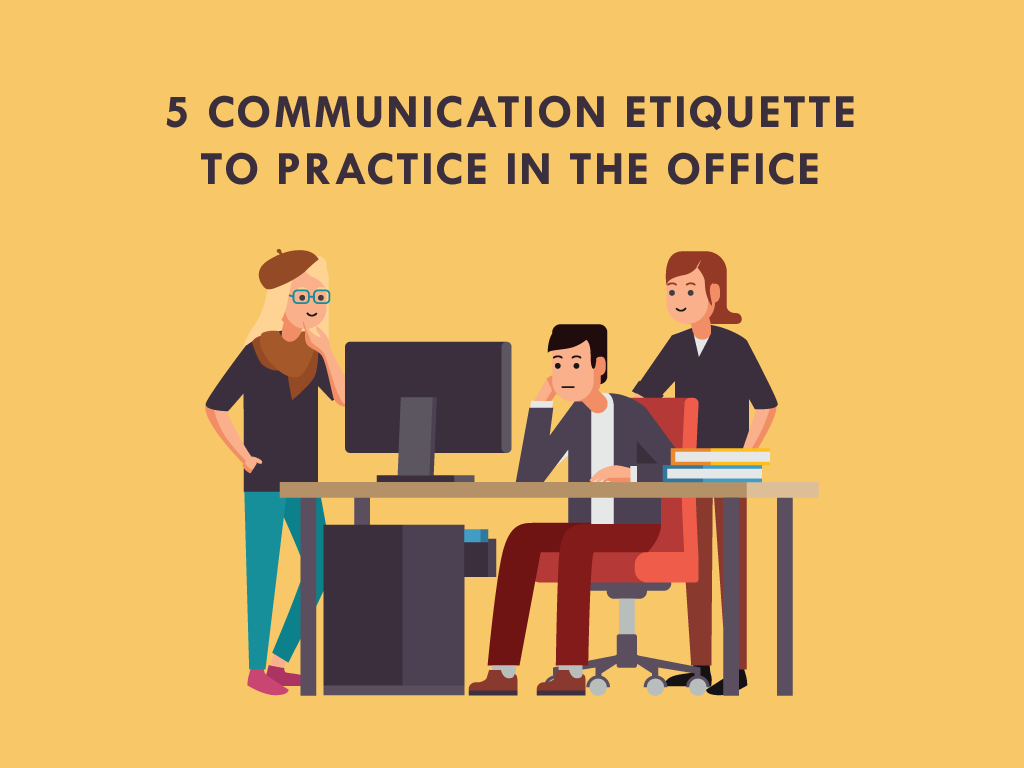5 Communication Etiquette to Practice in the Office

What most people often forget is that there’s a fine line between the comfort and professionalism. There’s no harm in talking with people but if proper etiquette is not observed when communicating – especially in the workplace – people might just get the wrong message. If you want to have a successful endeavour, then you should perfect your communication skills, as the exchange of ideas and information is crucial for any business. Proper communication is important in any workplace, no matter what type or where it’s located; whether it be a co-working space in the UK, virtual office in Manila, or open space office in China.
If you don’t know the proper communication etiquette for the office, here are some of them!
#1. Focus On the Other Person

It doesn’t matter if you’re an expert in multitasking, giving your sole attention on the other person will always be appropriate. If you have an email to reply to or a text message you have to read, kindly tell the other person and avoid multitasking. It’s not just appropriate it’s also a sign of respect, by giving your attention to another person you make them feel that they’re worth your time. Also, if you’re not focusing on the person, you might miss social cues that define where a conversation is headed.
#2. Listening Is Underrated
When miscommunication occurs, it may come at a cost; such as lawsuits, loss of respect, or misunderstandings. The way to avoid this is by simply listening to the one talking instead of thinking of a response already. Listening is too underrated in a fast-paced setting like a workplace but when it’s practiced consistently, it’ll develop into a habit. This will allow you to pay attention with all intent and listen to anyone who’s talking.
If you didn’t hear or understand something, don’t be afraid to ask for clarification. Showing physical cues can also be helpful because smiling, or nodding appropriately can let the speaker know that you’re paying attention.
#3. Appropriate Timing
When you want to talk to someone in the office, first, check if they’re not busy. Because communicating with someone while they’re busy may be counter-productive. This is because you may only get their divided attention or they could annoyed because you’re disturbing them. Also, if you’re the one who’s busy, you should ask the other person if it’s urgent, if not, ask them if you can talk to them later because you’re trying to finish something. Tell them as kindly as possible and they’ll surely understand.
#4. Appropriate Delivery

Along with proper timing, your delivery should still be observed. Before you talk to an officemate, try to determine if that particular matter is supposed to be conducted through a face-to-face discussion or you could just tell them through an email or text. Talking face-to-face is not always the answer; by practicing the right delivery you can practice efficient habits in whatever work setting you’re in.
#5. Questions Are Important
Effective communication will never be a one-way street, it’s an act between two or more people. Asking questions – specifically open-ended ones – will always be one of the most effective communication skills a person could have. By doing this, you’ll make the other person feel that they’re worth your attention. This also means that the conversation is a priority because when you ask questions, the conversation will be longer and more meaningful.
Communication skills and etiquette is one of the most important assets a person could have. Effective communication can always make or break a business so, always practice your communication skills and etiquette and you’ll have less problems in the long run.





